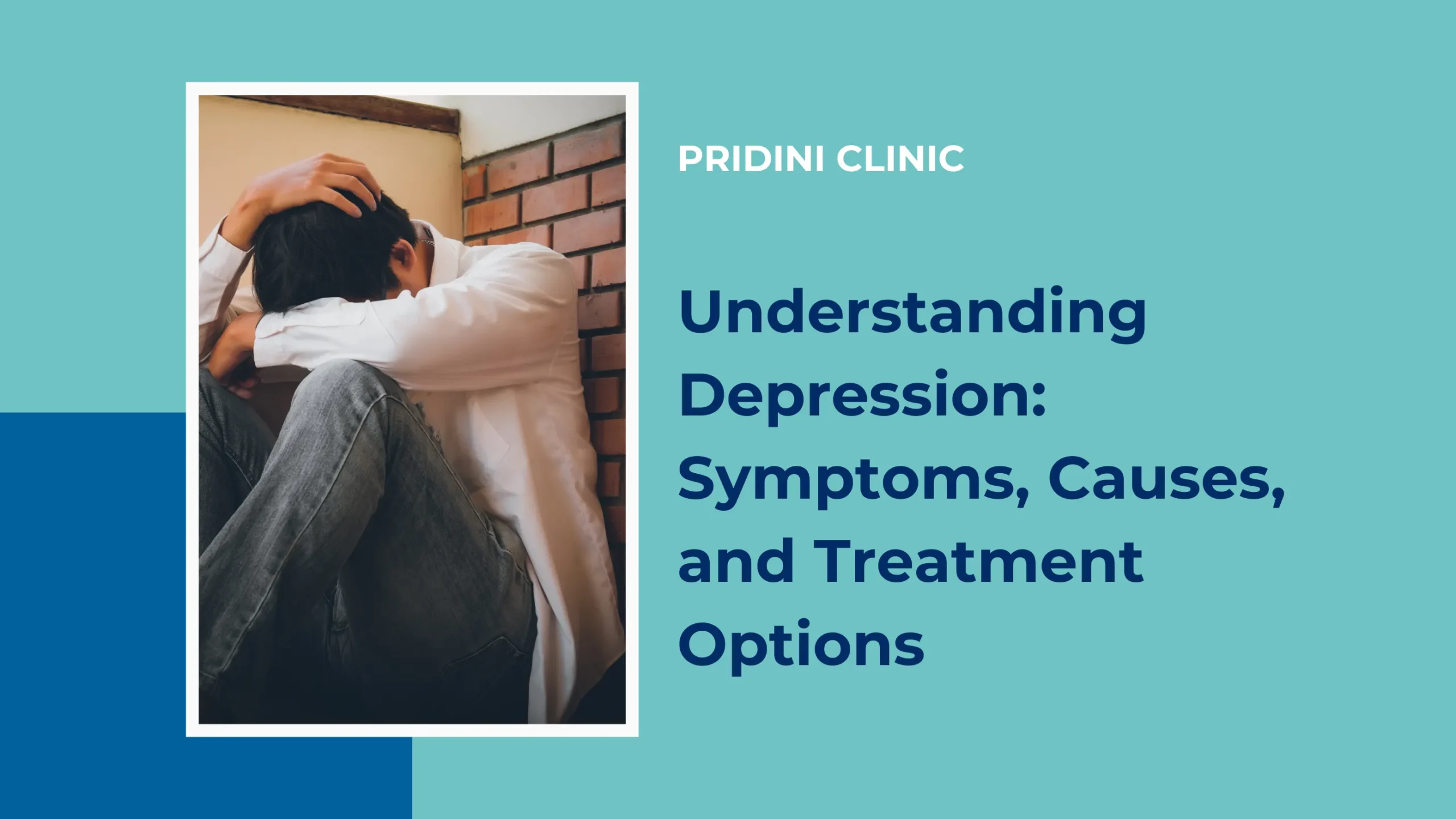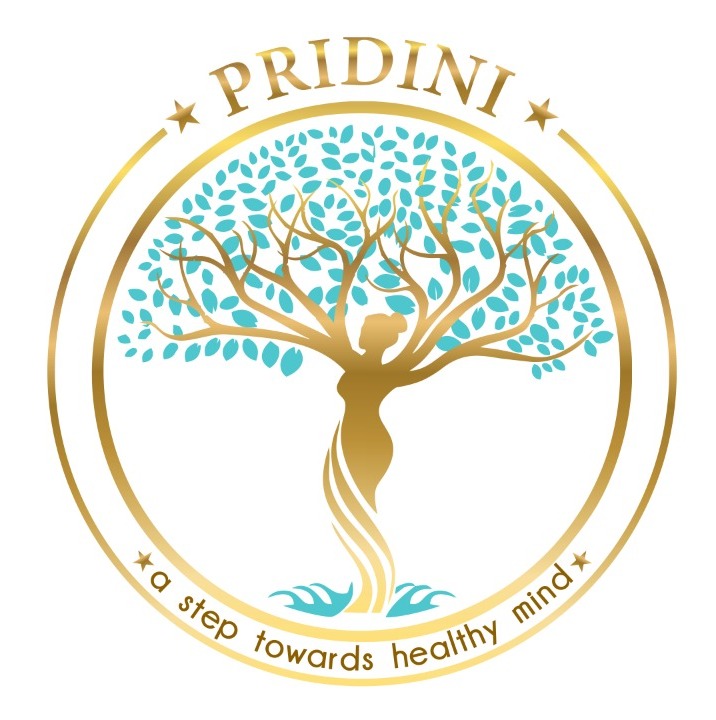
Depression is a pervasive mental health condition that affects millions of people worldwide. Despite its prevalence, depression is often misunderstood, and many who suffer from it may not fully grasp the nature of their condition or the available treatment options. At Pridini Clinic, we are dedicated to providing comprehensive care and support for those struggling with depression. This blog will help you understand depression by exploring its symptoms, causes, and treatment options, and guiding you on when it might be time to seek professional help.
What is Depression?
Depression, also known as major depressive disorder, is more than just feeling sad or going through a rough patch. It is a serious mental health condition that significantly impacts how a person feels, thinks, and handles daily activities. Unlike temporary feelings of sadness or grief, which are natural responses to life’s challenges, depression is a persistent condition that can last for weeks, months, or even years without proper treatment.
Depression affects every aspect of a person’s life, including their physical health, relationships, work, and overall quality of life. It is important to recognize that depression is not a sign of weakness, and it is not something that can be simply “snapped out of.” It is a medical condition that requires attention, understanding, and appropriate treatment.
Common Symptoms of Depression
The symptoms of depression can vary from person to person, but several common signs may indicate someone is struggling with this condition. These symptoms can range in severity and may include:
● Persistent sadness or low mood: Feeling down, hopeless, or empty most of the time.
● Loss of interest or pleasure in activities: A lack of interest in hobbies or activities that were once enjoyable.
● Changes in appetite or weight: Significant weight loss or gain, or changes in appetite.
● Sleep disturbances: Insomnia or sleeping too much.
● Fatigue or lack of energy: Feeling tired all the time, even after a full night’s sleep.
● Difficulty concentrating: Trouble focusing, making decisions, or remembering things.
● Feelings of worthlessness or guilt: Excessive guilt or feelings of being a burden to others.
● Physical symptoms: Aches, pains, or other physical symptoms that don’t have a clear cause.
● Thoughts of death or suicide: Recurrent thoughts of death, suicidal ideation, or attempts.
If you or someone you know is experiencing these symptoms, it’s important to acknowledge them and consider seeking help. Depression is treatable, and early intervention can make a significant difference.
Potential Causes of Depression
Depression is a complex condition with no single cause. It often results from genetic, biological, environmental, and psychological factors. Understanding these factors can help in managing the condition and identifying appropriate treatment options.
● Genetics: Depression can run in families, indicating that a genetic predisposition may play a role. However, not everyone with a family history of depression will develop the condition.
● Brain chemistry: Imbalances in neurotransmitters, which are chemicals in the brain that regulate mood, can contribute to depression.
● Hormonal changes: Hormonal fluctuations, such as those that occur during pregnancy, postpartum, or menopause, can trigger depression.
● Life events: Traumatic or stressful life events, such as the loss of a loved one, divorce, or financial difficulties, can lead to depression.
● Personality: People with certain personality traits, such as low self-esteem or a tendency to be overly critical, may be more prone to depression.
● Chronic medical conditions: Ongoing health problems, such as chronic pain or heart disease, can increase the risk of developing depression.
It is important to note that while these factors can increase the likelihood of depression, anyone can develop the condition, regardless of their circumstances.
Treatment Options: Therapy, Medication, and Lifestyle Changes
Treatment for depression often involves a combination of approaches tailored to the individual’s needs. At Pridini Clinic, we offer a range of treatment options to help manage and alleviate the symptoms of depression.
● Therapy: Various forms of psychotherapy, such as Cognitive Behavioral Therapy (CBT) and Rational Emotive Behavior Therapy (REBT), are effective in treating
depression. Therapy helps individuals identify and change negative thought patterns and behaviors that contribute to their depression.
● Medication: Antidepressants are commonly prescribed to help regulate mood by balancing neurotransmitters in the brain. While medication can be highly effective, it is often most beneficial when combined with therapy.
● Lifestyle changes: Incorporating healthy lifestyle habits can significantly impact mental health. Regular exercise, a balanced diet, adequate sleep, and mindfulness practices can help reduce the symptoms of depression and improve overall well-being.
At Pridini Clinic, our multidisciplinary team works closely with each patient to develop a personalized treatment plan that addresses their unique needs.
When to Seek Professional Help
Recognizing when to seek professional help for depression is crucial. If you have been experiencing symptoms of depression for more than two weeks, or if these symptoms are interfering with your daily life, it’s important to reach out to a mental health professional.
Other signs that it’s time to seek help include:
● Inability to manage daily tasks: If you’re finding it increasingly difficult to carry out
everyday responsibilities, such as work, school, or taking care of yourself.
● Self-harm or suicidal thoughts: If you are having thoughts of self-harm or suicide,
it’s imperative to seek immediate help from a professional or a crisis hotline.
● No improvement with self-help: Professional treatment may be necessary if
self-help strategies or lifestyle changes are not improving your symptoms.
Depression is a serious condition, but it is also highly treatable. At Pridini Clinic, we are committed to providing compassionate, comprehensive care to help you manage your depression and achieve better mental health.
Begin your journey to a healthier mind today by contacting Pridini Clinic for support and
guidance in managing depression.

